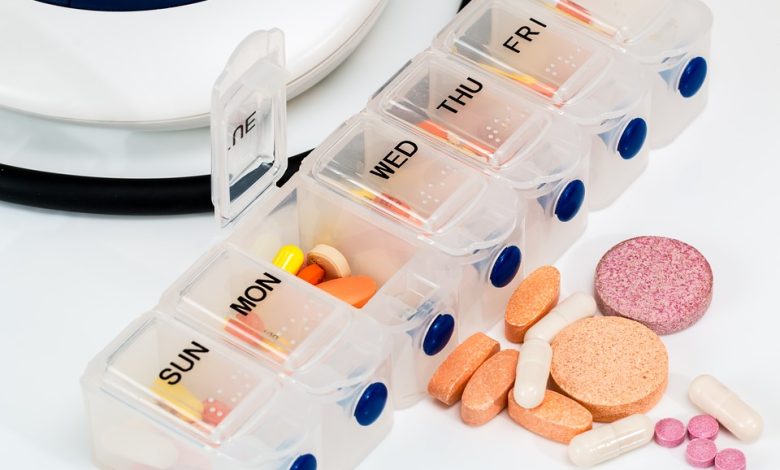Top 10 Anti-Cancer Drugs Globally

The global cancer epidemic is a growing public health crisis that affects individuals and societies around the world. Cancer is the second leading cause of death globally, responsible for approximately 10 million deaths in 2020 alone. According to the World Health Organization (WHO), the incidence of cancer is expected to increase by 50% in the next two decades, with an estimated 21.5 million new cases and 13 million cancer-related deaths by 2030.
There are several factors contributing to the global cancer epidemic. One major factor is population growth and aging, as cancer incidence rates increase with age. Lifestyle factors such as tobacco use, unhealthy diet, physical inactivity, and alcohol consumption are also significant contributors. Environmental factors such as air pollution, radiation exposure, and occupational hazards can also increase the risk of cancer.
The development of effective cancer drugs is a complex and ongoing process that involves extensive research, clinical trials, and regulatory approvals. Here are some of the key steps involved in this process:
1. Target Identification: This is the first step in the drug development process, where researchers identify the specific molecular targets that are responsible for the growth and survival of cancer cells.
2. Drug Discovery: Once the targets have been identified, scientists use various methods to discover potential drugs that can interact with the targets and block their activity.
3. Preclinical Testing: The potential drugs are then tested in the laboratory and in animal models to evaluate their safety and efficacy.
4. Clinical Trials: If a drug shows promising results in preclinical testing, it moves on to clinical trials where it is tested in humans. Clinical trials typically have three phases, with each phase designed to gather increasingly detailed information about the drug’s safety and effectiveness.
5. Regulatory Approval: After the successful completion of clinical trials, the drug can be submitted for regulatory approval. The regulatory agency (such as the FDA in the US) evaluates the data from the clinical trials and decides whether the drug is safe and effective enough to be approved for use in patients.
6. Post-Marketing Surveillance: Once a drug is approved and on the market, it is continuously monitored for any adverse effects or unexpected benefits.
The development of effective cancer drugs is a lengthy and expensive process that can take many years and millions of dollars. However, successful drugs can make a significant difference in the lives of cancer patients, and ongoing research is essential for improving outcomes and finding new treatments.
Top 10 Anti-Cancer Drugs Globally
The development of effective cancer drugs has been a major focus of research in recent decades. In this article, we will discuss the top 10 anti-cancer drugs in detail.
1. Rituximab: Rituximab is a monoclonal antibody that targets a protein called CD20 found on the surface of B cells. It is used to treat B-cell non-Hodgkin’s lymphoma, chronic lymphocytic leukemia, and rheumatoid arthritis. Rituximab works by binding to CD20 on B cells, triggering the immune system to attack and destroy them.
2. Imatinib: Imatinib is a tyrosine kinase inhibitor that is used to treat chronic myeloid leukemia (CML) and gastrointestinal stromal tumors (GISTs). It works by inhibiting the activity of a protein called BCR-ABL, which is responsible for the uncontrolled growth of CML cells.
3. Trastuzumab: Trastuzumab is a monoclonal antibody that targets the HER2 protein found on the surface of some breast cancer cells. It is used to treat HER2-positive breast cancer. Trastuzumab works by binding to HER2, blocking its activity, and triggering the immune system to attack and destroy cancer cells.
4. Paclitaxel: Paclitaxel is a chemotherapy drug that is used to treat a variety of cancers, including breast, ovarian, and lung cancer. It works by interfering with the microtubules in cancer cells, preventing them from dividing and growing.
5. Cisplatin: Cisplatin is a chemotherapy drug that is used to treat a variety of cancers, including testicular, ovarian, and lung cancer. It works by damaging the DNA of cancer cells, preventing them from dividing and growing.
6. Bevacizumab: Bevacizumab is a monoclonal antibody that targets a protein called vascular endothelial growth factor (VEGF). It is used to treat a variety of cancers, including colorectal, lung, and kidney cancer. Bevacizumab works by blocking the formation of new blood vessels that supply the cancer cells with nutrients and oxygen.
7. Docetaxel: Docetaxel is a chemotherapy drug that is used to treat a variety of cancers, including breast, lung, and prostate cancer. It works by interfering with the microtubules in cancer cells, preventing them from dividing and growing.
8. Oxaliplatin: Oxaliplatin is a chemotherapy drug that is used to treat colorectal cancer. It works by damaging the DNA of cancer cells, preventing them from dividing and growing.
9. Tamoxifen: Tamoxifen is a hormonal therapy drug that is used to treat breast cancer. It works by blocking the activity of estrogen in breast cancer cells, which slows or stops their growth.
10. Bortezomib: Bortezomib is a proteasome inhibitor that is used to treat multiple myeloma and some types of lymphoma. It works by blocking the activity of proteasomes, which are responsible for breaking down proteins in cancer cells. This leads to the accumulation of toxic proteins and ultimately cell death.
These are the top 10 anti-cancer drugs currently in use. While they are all effective in treating cancer, they come with their own set of side effects and risks. It is important to work closely with a healthcare provider to determine the best treatment option for an individual’s specific situation. Additionally, ongoing research and development are critical to finding new and improved cancer treatments in the future.





